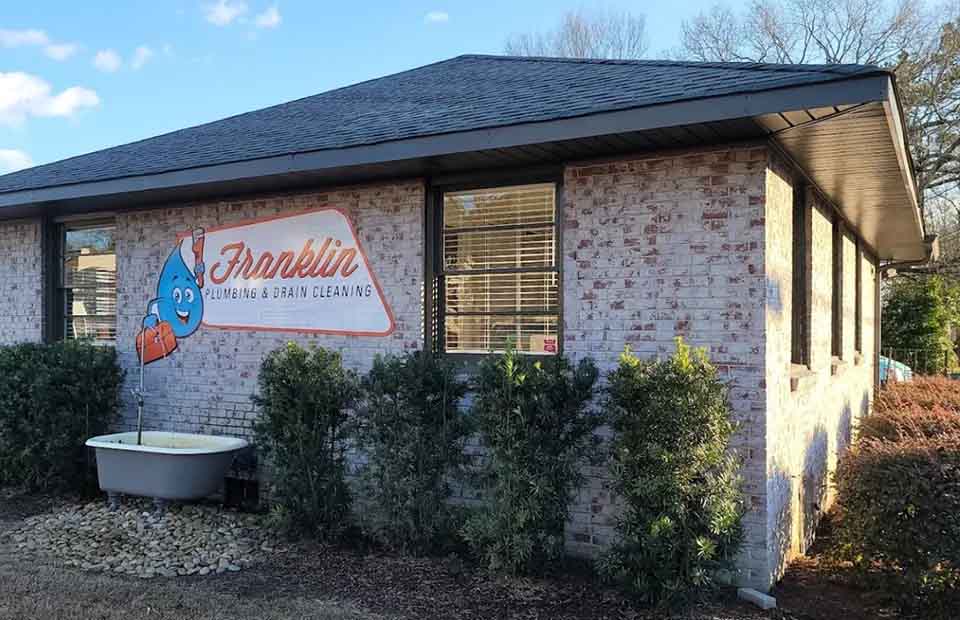A few months before Doris Summerville was planning to open an at-home day care in her Maywood home, she discovered she had a lead service line.
If not for plumbing problems, Summerville might not have found out about the threat.
“We have got to do what we have got to do to be safe, and then for these children, especially the children in my care, I don’t want them growing up and they have all these issues,’’ she said.
Summerville was able to take advantage of LeadCare Cook County, an initiative aimed at helping child care providers address lead in drinking water. She now runs Nana’s House, where she cares for children 6 weeks to 12 years old.
Replacing lead pipes in the Chicago area is a complex process. Even those who know about and qualify for the city’s free lead line replacement programs struggle with red tape, and community organizers and advocates for clean water say the city needs to overcome financial and educational challenges and move more swiftly to implement a plan.
Chicago has the highest number of lead service lines in the nation, with close to 400,000 lead pipes supplying water to the city’s residents. And many homeowners with properties built before 1986 — the year lead pipes were nationally banned — likely have a lead pipe running directly from their home to the nearest water main.
Children are most at risk from lead exposure, which can have harmful effects on their early development. According to the Centers for Disease Control and Prevention, there is no safe blood lead level in children, and any exposure can cause long-term harm.
A recent study published in the JAMA Pediatrics journal found more than two-thirds of children under the age of 6 may be exposed to lead-contaminated water in Chicago.
Deborah Carroll, director of the government finance research center at the University of Illinois at Chicago, is part of a research team studying lead levels in Chicago by neighborhood. From her research, Carroll said there are educational barriers to replacing lead pipes.
“One of the biggest challenges with replacing lead service lines is that people don’t know that they have lead in their service lines, or they don’t really have any interest in getting them replaced because there potentially could be some cost burden for the homeowner,” Carroll said.
To build trust between communities and water providers, the city should prioritize outreach efforts aimed at educating residents on the lead line replacement process, Carroll said.
“A lot of the academic research shows that minority populations are especially distrusting of public water systems,” Carroll said. “And African American individuals have a tendency to consume greater amounts of bottled water as a result of the lack of trust. So that’s an issue.”
Collective action is needed to accelerate the removal of all lead lines, according to Caroline Packenham, the director of water programs at Elevate, which administers LeadCare.
“We all need to come together to figure out what we can do to accelerate lead service line replacement, because the longer we have these pipes in the ground, more generations are going to be exposed to drinking water from, essentially, a lead straw,” Pakenham said.
An equity issue
Summerville said the LeadCare staff helped her test her water for lead, and when it came back showing 2.5 parts per billion (ppb), she added filters to her bathroom and kitchen faucets. In Illinois, all homes with licensed child care operations with children under the age of 6 and built before the year 2000 must take action when lead is detected over 2 ppb.
LeadCare sent contractors to inspect her lead pipe and explain the replacement process. Once the lead pipe was replaced with a new copper one, Summerville said she noticed the water from her tap was clearer and the pressure greatly improved.
“I pray that every house in the world can have this done,” Summerville said. “I still use bottled water for drinking and stuff, but it runs out of the faucet much better. And it’s really clear, you know, something worked.”
LeadCare Cook County is administered by Elevate, a Chicago-based, national nonprofit committed to helping child care providers address lead in drinking water. Elevate has partnered with Cook County to administer the program, which offers free lead service line replacements for home-based and center-based child care facilities in suburban Cook County.
Packenham said the program is funded by the American Rescue Plan Act to address infrastructure investment gaps in suburban Cook County.
“It was really an equity issue. Like you have these standards but there aren’t a lot of finances or resources and support in place to help you when you do find lead in your water,” Pakenham said.

In 2021, Illinois mandated the removal of all lead service lines with the Lead Service Line Replacement and Notification Act. But according to Mayor Brandon Johnson’s administration, it could take 40 years and cost up to $12 billion.
The city Department of Water Management offers five free lead service line replacement programs under Lead-Safe Chicago, a project launched in 2020 under then-Mayor Lori Lightfoot’s administration to address the need for complete lead line removal.
These programs include:
- Equity lead service line replacement, for eligible low-income homeowners.
- Homeowner-initiated replacement, with up to $5,000 in permit fee waived.
- Day care replacement in low-income neighborhoods.
- Breaks and leaks, offering free replacements for damaged lines
- Block-long replacement, for lines affected by water main work.
The water department cited numerous challenges in replacing lead pipes throughout Chicago, including the need for more federal and state funding, the scarcity of plumbing companies willing to do replacements, the complexities of urban construction, and residents’ reluctance to agree to excavation on their properties.
A spokesperson for the water department said securing enough funding to replace the private and public sides of the lines is critical to meet the 40-year timeline. The department also cited a need for more professional plumbers trained in lead service line removal.
Lengthy journey
Reviews of the city’s process to replace lead pipes have been mixed. One early participant of the city’s equity program said it was unduly burdensome for the homeowner, requiring extensive documentation to prove eligibility.
Gina Ramirez, who works for the nonprofit Natural Resources Defense Council, persuaded her parents to apply for the city’s equity lead line replacement program in July 2021, not long after it was launched in 2020 to alleviate the financial burden of lead line replacement — a project that costs between $16,000 and $30,000 — for low-income residents.
Ramirez’s mother applied for the city’s program because her disability, retirement status and limited income matched the eligibility requirements. Ramirez’s sister and 13-year-old son also live at their family home, which Ramirez said bolstered their chances of getting approved.
But the Ramirez family didn’t anticipate it would take two years to prove their eligibility.
Ramirez said her mother’s application was repeatedly held up as the city needed more documents, including the deed to their house, utility bills and her grandson’s report card, and, later, a water sample to prove her eligibility.
“A few times she wanted to give up, but my sister and I just kept encouraging her to submit the documentation,” Ramirez said.
Ramirez also has a lead service line running beneath her home in Chicago’s Southeast Side, but unlike her parents, she does not qualify for the city’s free replacement program.
“I also can’t afford a $30,000 (replacement) job,” Ramirez said. “That sucks. I’m pregnant right now and I’m drinking bottled water or filtered water.”
Since Ramirez had her family’s lead line replaced, the water department spokesperson said the paperwork required by the HUD Community Development Block Grant, which is funding the program, has been reduced and there is no longer a requirement for a homeowner’s water to test above the U.S. EPA’s lead action level of 15 ppb.
One resident’s success
While Ramirez found the city’s equity replacement program challenging for her family, Shirley Hall, a 79-year-old homeowner in the West Side neighborhood of North Austin, reported a much smoother experience.
Hall, a widow, has lived in her home since 1979 when she moved in with her husband and two children. After living on her own for the last 24 years, Hall applied for the city’s equity lead line removal program in September 2022.
Hall said she was unaware there were city programs where she could replace her lead pipe for free until watching the news one evening.
“I’d seen it on the news, and my neighbor had gone to a meeting and she had given me the application,” Hall said.
Both she and her neighbor applied for the program.

To prove her eligibility, Hall said she submitted extensive documentation including her husband’s death certificate, her state ID, Social Security benefits, income verification, property deed, real estate property tax bill, utility bill and income tax return from the most recent two years.
Despite having to gather all of these documents, Hall said filling out the application and getting approved was easy.
“I had to help my neighbor across the street with some parts, but it was simple, just following the directions,” Hall said.
Around nine months after she applied, Hall said her application was approved, and the work was completed in October.
Since the pipe was replaced, Hall said she has noticed significant improvement in the water pressure from her faucets and washing machine. Without the city’s program, Hall said she would have been unable to afford the nearly $30,000 job.
Ongoing efforts
In November, the city borrowed $336 million from the EPA to replace 30,000 lead service lines, but Chicago faces challenges in accessing other federal grant funding because the section of lead service lines between homes and water shut-off boxes is classified as private property.
As of December, 3,777 lead pipes have been replaced, but city officials hope the addition of the breaks and leaks and block-long replacement programs will speed up the process.
While the city is working on prioritizing low-income residents through its free lead line removal programs, Ramirez, who advocates for water quality justice, said there is an urgent need to speed up the removal of all lead pipes in the city.
A 2020 analysis by the Metropolitan Planning Council shows Black and Hispanic residents are twice as likely as white residents to live in communities with the highest concentration of lead service lines.
“It’s scary because South Chicago is so poor and then to see those high lead lines, and then there isn’t even a health center in the neighborhood,” Ramirez said. “It’s like a human right, the right to clean drinking water.”
Editor’s note: Earlier versions of this story incorrectly identified and characterized the organization that replaced Doris Summerville’s lead service line. LeadCare Cook County, which is administered by Elevate and funded through the American Rescue Plan Act, replaced the line. The program is available to home-based and center-based day cares in suburban Cook County. Also, earlier versions misstated which homes are subject to action when lead is detected. Homes built before 2000 with licensed child care operations must take action when lead is detected.










